For Local Society
We consider local society along railway lines to be an important source of business for the Tobu Group. In cooperation with local residents, local governments, schools, and other stakeholders, we endeavor to create communities, provide livable local society, and create attractiveness in local society through initiatives including providing convenient facilities, transporting unique local products from communities along railway lines, and creating local society.
Regional revitalization through the Railway Business
Start of the “utilization of limited express trains to transport unique local products from communities along railway lines”
In September 2024, Tobu Railway began utilizing limited express trains to transport unique local products from communities along railway lines, in order to discover the attractions of local society along railway lines and deliver them to customers in Japan and overseas via rail transport.
In this initiative, we utilize the Limited Express Spacia train to transport rare “Sharimanten” Koshihikari rice produced in Nikko from Shimo-Imaichi Station on the Nikko Line to Asakusa Station on the Tobu Skytree Line. It is then delivered to the Asakusa Tobu Hotel, near the terminal station in Tokyo operated by Tobu Hotel Management, and other major hotels in Tokyo, where it is served at restaurants. The use of limited express trains instead of trucks for distribution facilitates environmentally friendly and stable transportation without facing traffic jams.
Additionally, sales channels for “Sharimanten” were previously limited because of its rarity, but we aim to transport 6t of “Sharimanten” per year through this channel, and we will also contribute to the expansion of sales channels in the future.
Through this initiative, in the Tobu Group, we will fulfill our social mission as a railway company by achieving collaborative creation with communities along railway lines by taking on the challenge of enhancing the vitality and value of these communities through the discovery of their attractiveness.
[Transportation Schedule]

Supporting “regional revitalization” through rail transport
In August 2021, we introduced a pay-as-you-go baggage fee system for companies and organizations working to revitalize local society to bring baggage to cabin space.
As the first initiative using this system, we are implementing the “TABETE Rescue Direct Sales Center” where agricultural products and other items that have not been sold out at direct sales points around the city of Higashimatsuyama are transported from Shinrinkoen Station on the Tojo Line to Ikebukuro Station and sold inside there with the aim of reducing food loss. As a result, we were able to reduce food loss by a cumulative total of 77 tons by the end of September, 2024.
To further reduce food loss, vegetables that could not be sold at the direct-sale center are donated to the OOC Children’s Cafeteria for use as ingredients.
In March 2023, the "TABETE Rescue Direct Sales Shop" project, which was implemented through such collaboration, received the "SDGs Promotion Deputy Director General (Chief Cabinet Secretary) Award" at the 6th Japan SDGs Awards (Organizer: SDGs Promotion HQ; Head of HQ: Prime Minister of Japan), which is presented to companies and organizations that have made particularly outstanding achievements.

Loading of agricultural products at Shinrin-koen Station

Award ceremony
“Strawberry Kingdom” Line, a nickname for the Tobu Utsunomiya Line
Since Yashu-Otsuka Station on the “Strawberry Kingdom Line” (Tobu Utsunomiya Line) is the nearest station to the Strawberry Research Institute (Tochigi Prefectural Agricultural Research Center), a general research center for strawberries, we have remodeled the station building into a strawberry color and changed the secondary station name to “Strawberry Research Institute” from Saturday, June 15, 2024.
Additionally, on this day, we held a ceremony to unveil the station building and signboard, held an agricultural product market to sell strawberries and other products, and held the “Tobu Utsunomiya Line Free Ride Day” offering free rides on the entire Tobu Utsunomiya Line, which was also popular with customers last year.
Since 2023, in commemoration of Tochigi Prefecture's 150 year anniversary, the Tobu Utsunomiya Line has been nicknamed the "Strawberry Kingdom Line," and going forward, we will continue cooperating with Tochigi Prefecture on various initiatives to publicize the fact that Tochigi Prefecture has the largest strawberry harvest in Japan, including the operation of the "Very Happy Train," which features strawberry wrapping on 20400 Series trains in operation mainly on the Tobu Utsunomiya Line, and the operation of the "Strawberry Spacia," which features strawberry coloring.

Using locally produced materials
Tobu Railway uses Oyaishi and Ashinoishi, stones produced in Tochigi Prefecture along the Tobu Railway lines, for the walls of some stations. Through efforts such as the use of these locally produced materials, we will work to enhance the attractiveness and value of the areas along our lines.


PR poster for the use of local wood in the renovation of the station

Tokiwadai Station building

Minami-Utsunomiya Station building
Promotion of multilevel railroad system (revitalization of communities by eliminating the division of areas)
In addition to drastically solving railroad crossing accidents, we are currently promoting a continuous grade separation of railroads at four locations along our lines to contribute to urban restoration and revitalization by eliminating road congestion and area fragmentation.
Four Sites under Project Promotion
- ・ Tobu Urban Park Line between Shimizu Park and Umesato Stations
- ・ Tobu Skytree Line, near Tokyo Skytree Station
- ・ Tobu Skytree Line and Tobu Urban Park Line, near Kasukabe Station
- ・ Tobu Tojo Line, near Oyama Station
Community development in cooperation with local governments
Partnership Agreement with Local Governments along our Railway Lines
Tobu Railway and TOBU TOP TOURS have entered into an agreement to cooperate and collaborate with local governments and other organizations along our rail lines “to cooperate and promote the creation of tourist areas that utilize each other's strengths and resources.” Through this agreement, we will work together more closely than ever before to implement measures to enhance the value of our railway lines.
*Status of agreements recently concluded: March 2023: Ogawa-machi, Hiki-gun, Saitama; May 2023: Kokugakuin University, Tochigi-shi, Tochigi (Faculty of Tourism and Community Development)

Signing ceremony of the agreement with Ogawa-machi, Hiki-gun, Saitama Prefecture

Signing ceremony of the agreement with Kokugakuin University, Tochigi-shi, Tochigi
Sustainable neighborhood development through five-party collaboration among industry, government, and academia
Kuki City, Tobu Railway, Toyota Home, Aeon Retail and Hiroshi Onoda Class of Waseda University have established the “BRIDGE LIFE Platform,” a next-generation neighborhood development project through industry-government-academia collaboration around the Minami-Kurihashi Station.
In order for these five parties to work closely together and cooperate to promote the project, an “Agreement on Cooperation and Collaboration in Neighborhood Development” was executed.
In detached houses for sale, energy-saving systems such as high-efficiency air conditioners and LED lighting, energy-creating systems including solar power generation, and home energy management systems (HEMS) that control these systems are used, based on homes with high thermal insulation. Homes are designed as a Zero Energy House (ZEH), aiming to reduce annual energy consumption (primary energy equivalent) to net zero or less.
The project received the Good Design Award 2023 from the Japan Institute of Design Promotion.
Given the challenges facing rural and suburban areas, such as population decline and aging, we believe that this project has been highly recognized for actively sharing knowledge among industry, government, and academia, enabling the five parties to realize environmentally friendly and next-generation smart cities while leveraging their respective strengths.

Evening scene from BRIDGE LIFE Platform Minami-Kurihashi
Joint promotion of community development in the “west side of the Dokkyodaigakumae (Soka-Matsubara) Station”
On May 9, 2024, Tobu Railway concluded an agreement on community development in the “west side of the Dokkyodaigakumae (Soka-Matsubara) Station” in Soka City, Saitama Prefecture, through five-party collaboration among industry, government, and academia.
In order to address issues such as deteriorating facilities and aging of the population in this area, which covers approximately 54ha, each of these organizations will work together under the concept of "WELL BIND," aimed at fostering a future where multiple generations can connect, learn, and lead vibrant lives for all. In addition, the five parties will work together with residents, businesses, and local organizations to engage in community development aimed at contributing to the revitalization of the region by creating continuous activity and exchange in a soft sense.

Five-party collaboration among industry, government, and academia
Support for "relocation" of families in cooperation with local governments along railway lines
We are conducting a "relocation support project" in which we lease residential properties from households of senior citizens and rent them out to families with children, etc. We are deploying this project through Tobu Railway's participation in the "My Home Leasing System" implemented by the Japan Trans-housing Institute (JTI).
In addition, in order to promote the relocation of families with children, etc., to Saitama Prefecture and revitalize local society in areas along railway lines, we have concluded a mutual cooperation agreement with Saitama Prefecture, and we are promoting support for living suited to needs associated with relocation, by carrying out publicity activities, relocation, consultation events for people who wish to move, etc., in cooperation with Saitama Prefecture.

Motto Zutto Project poster

Partner for utilizing your own home
Provision of services tailored to customers’ lifestyles
Supply of condominium with childcare support facilities
Solaie I’ll Nerimakitamachi, a rental apartment built in January 2020, was the first building that Tobu Railway received certification for under the Tokyo Metropolitan Government Child Care Support Housing Certification System.
Under this program, the Tokyo Metropolitan Government recognizes houses as an excellent example of considering the safety of tenants and the ease of doing housework, and creating an environment conducive to parenting by providing facilities and services that support childcare.
The property has been designed to create an environment conducive to parenting by incorporating a floor plan that considers the movement flow and size of the house, as well as preventing finger-jamming in doors, offering a baby carriage space, and providing residents with free slots for babysitting services, and a kids’ room in the common area.
In addition, we became the first private housing company to introduce “e-Pal Box,” a home delivery locker with an emergency food circulation system. During normal times, the food is sold automatically as part of the residents’ daily diet, and in the event of an earthquake, the stockpile box is automatically opened when a tremor is detected, and the products are replenished once a week, enabling rolling stock (circulation of emergency food).
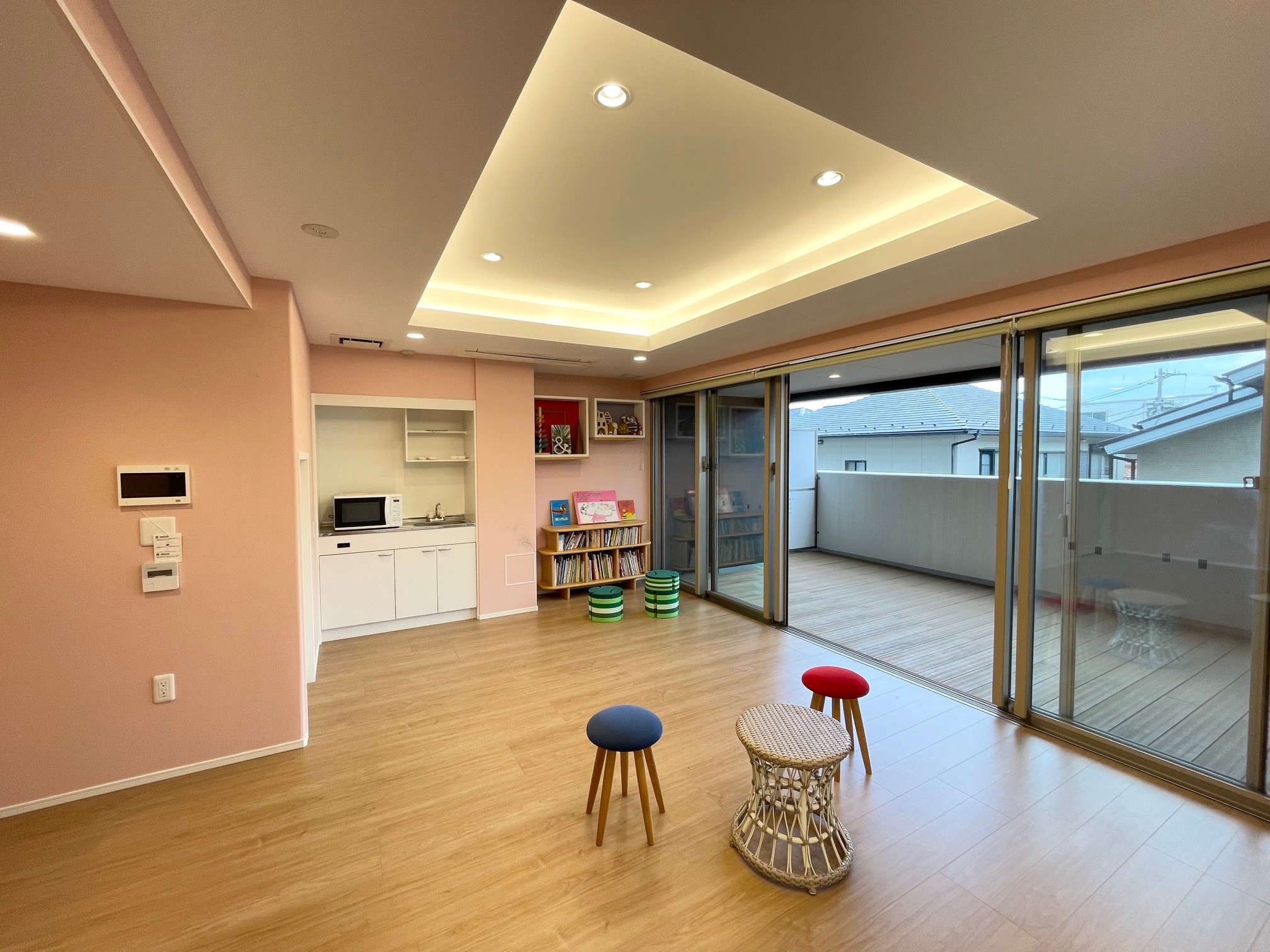
Solaie I’ll Nerimakitamachi Kids Room
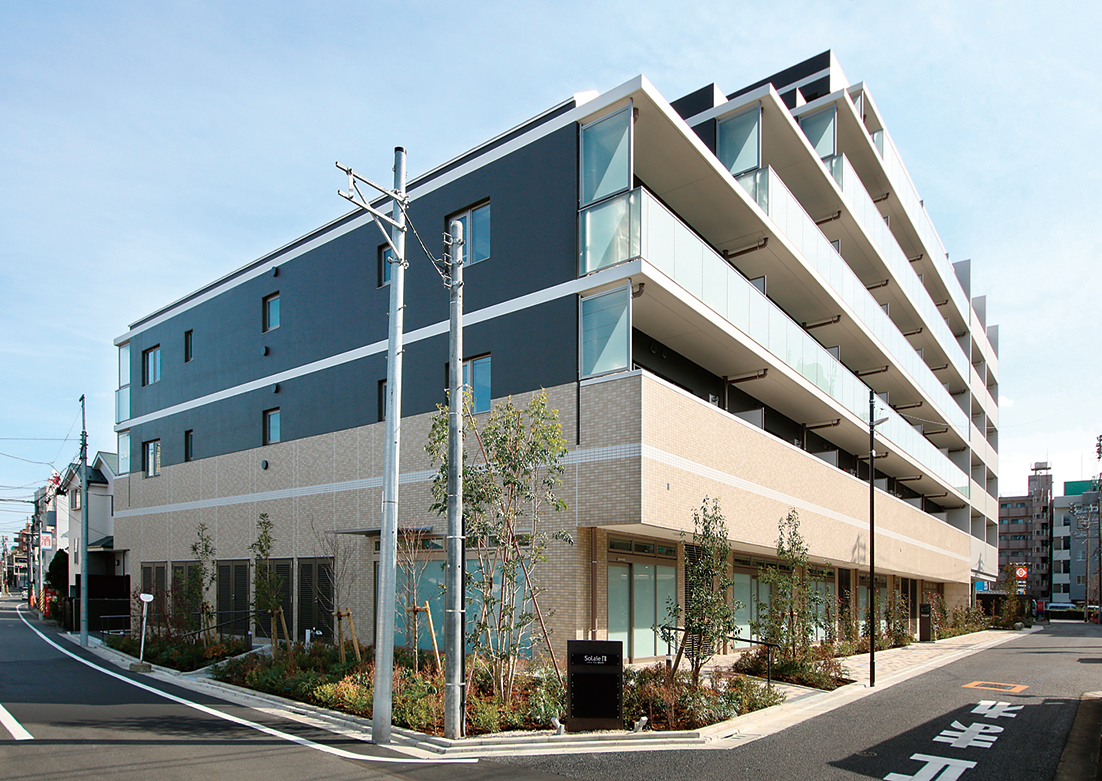
Solaie I’ll Nerimakitamachi exterior
Opening of Station Daycare facilities
Since 2012, Tobu Railway has added childcare facilities and the total number of Tobu Railway’s Station Daycare Centers to 18 on the entire Tobu Line.
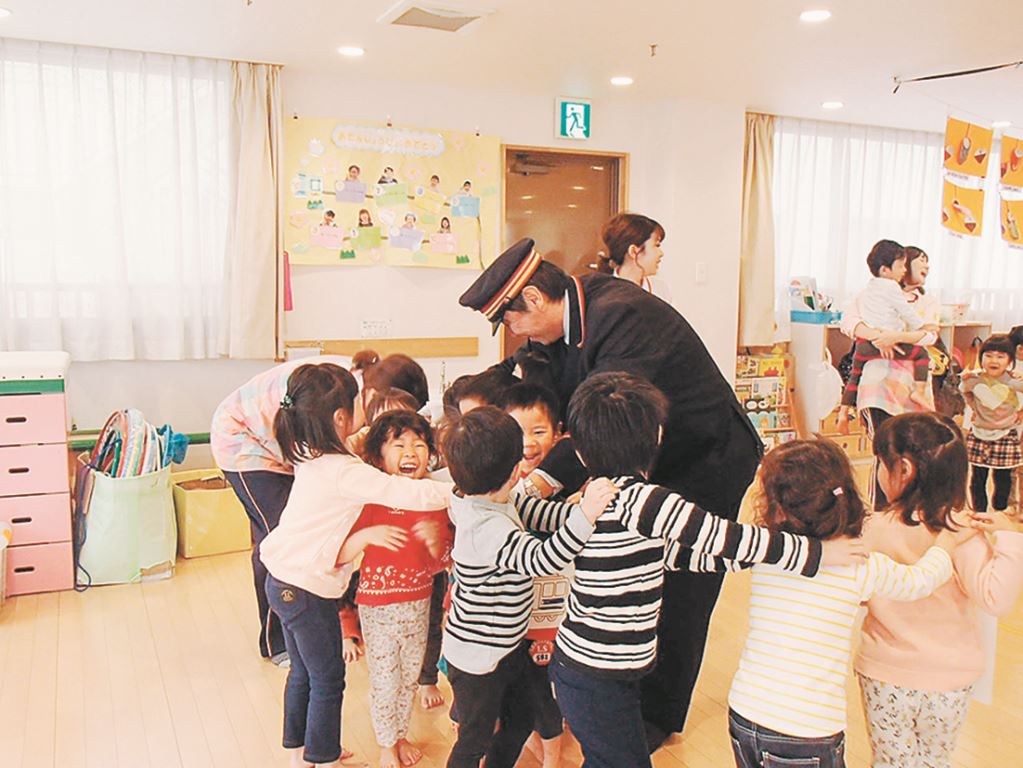
Edogawadai Daycare Center
Enhancement of “TOBU POINT Parenting Support Program”
The Tobu Group has introduced the “TOBU POINT Parenting Support Program” to make it easier for the generation raising children to go out as a family. We started this program with the hope of increasing opportunities for families to enjoy going out by train and thus deepen family ties. The Tobu Group aims to increase the population of permanent residents by supporting the child-rearing generation through such initiatives, and creating communities in areas along railway lines where people want to continue living.
The “TOBU POINT Parenting Support Program” offers the following two benefits, and anyone can enjoy these benefits by registering their PASMO number or Tobu Card (credit card) for TOBU POINTs.
1. Points for parents and children going out together
If customers use the Tobu Line together with their children during the applicable period with a PASMO registered for TOBU POINTs, they receive TOBU POINTs equivalent to the total Tobu Line fare for their children. This enables children to use the Tobu Line effectively free of charge when they go out with their parents.
2. Child school commuter pass points
If customers purchase a school commuter PASMO pass for their child with a Tobu Card registered for TOBU POINTs, they receive TOBU POINTs equivalent to the total Tobu Line fare for their child. This enables the use of child school commuter passes on the Tobu Line effectively free of charge.
Through this program and other forms of support for the child-rearing generation, the Tobu Group will promote sustainable development together with local society along railway lines, as part of our aim to realize a “human-friendly society where people and communities continue to flourish together.”
Development and supply of housing for seniors
Construction of the Iwatsuki Ekimae Building, which combines the rental apartment Solaie I’ll Iwatsuki, housing for seniors with services, a clinic, and a convenience store, was completed in June 2021.
The concept of the rental apartment Solaie I’ll Iwatsuki and the housing tailored to senior residence is to coexist in harmony with their pets, and by installing a dog run that can be shared by residents of both properties, the project aims to promote multi-generational exchange through coexistence with pets.
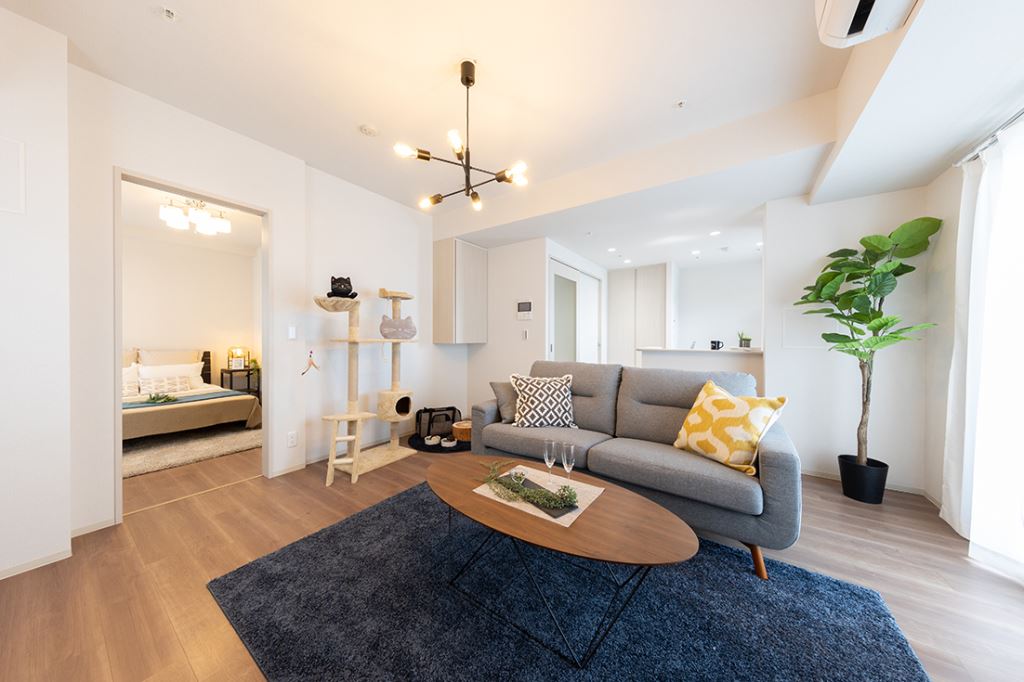
Solaie I’ll Iwatsuki
Supply of housing for sale supporting work from home
We are promoting the supply of housing in response to telecommuting. In Solaie Shimizu Park Urban Park Town, detached houses sold in 2023, each residence has its own concept, such as “Home with telework space” or “Home with theater pit.” “Home with telework space” offers a floor plan considering the layout of the rooms so that residents can relax and work in a calm environment.
In addition, the condominiums “Solaie Shinkamagaya” and “Solaie Wakaba Station Villa” have work spaces in the common area, providing a space where people can concentrate on their work in a place separate from their living space.
We will continue to plan and supply housing that responds to new lifestyles.
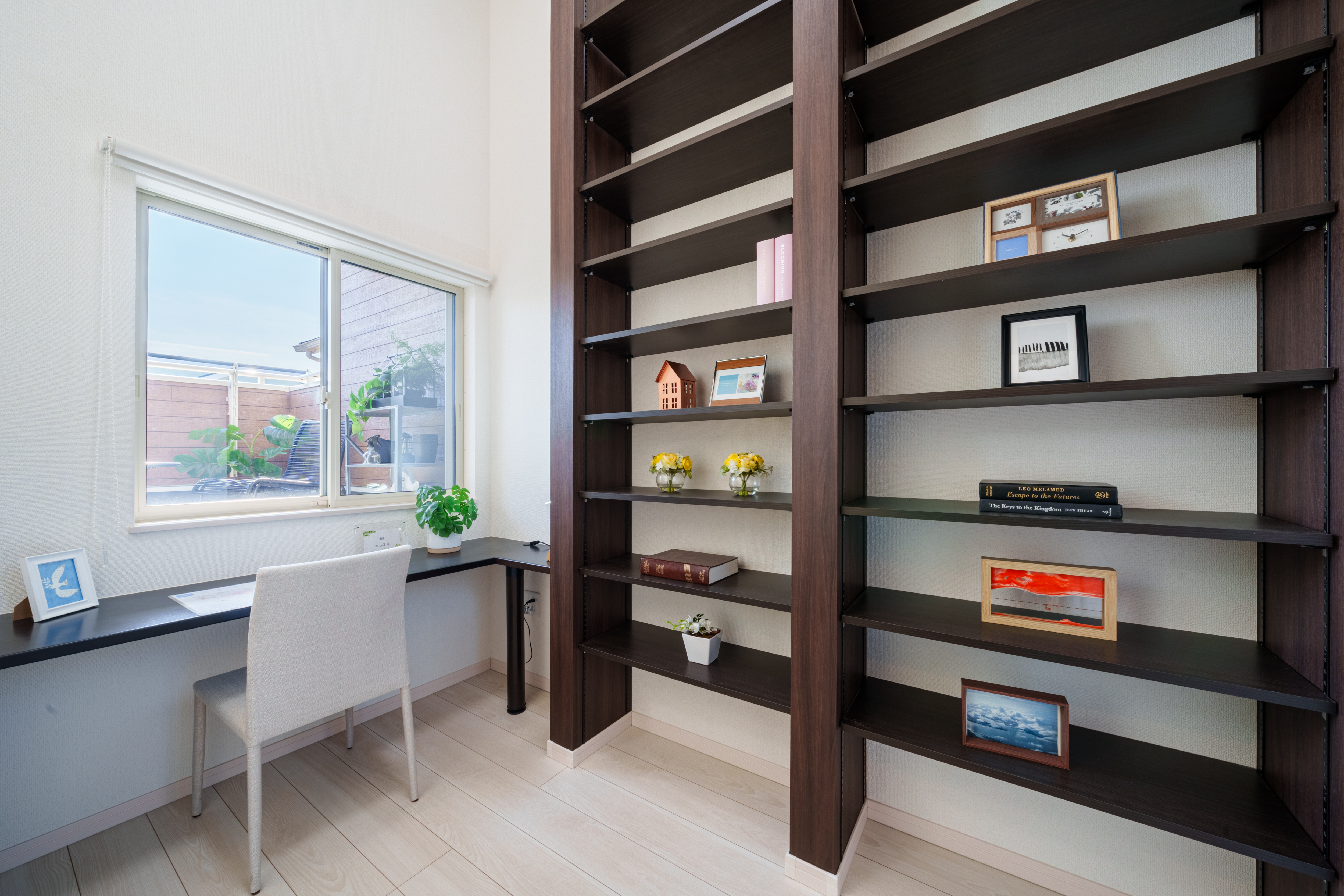
Urban Park Town
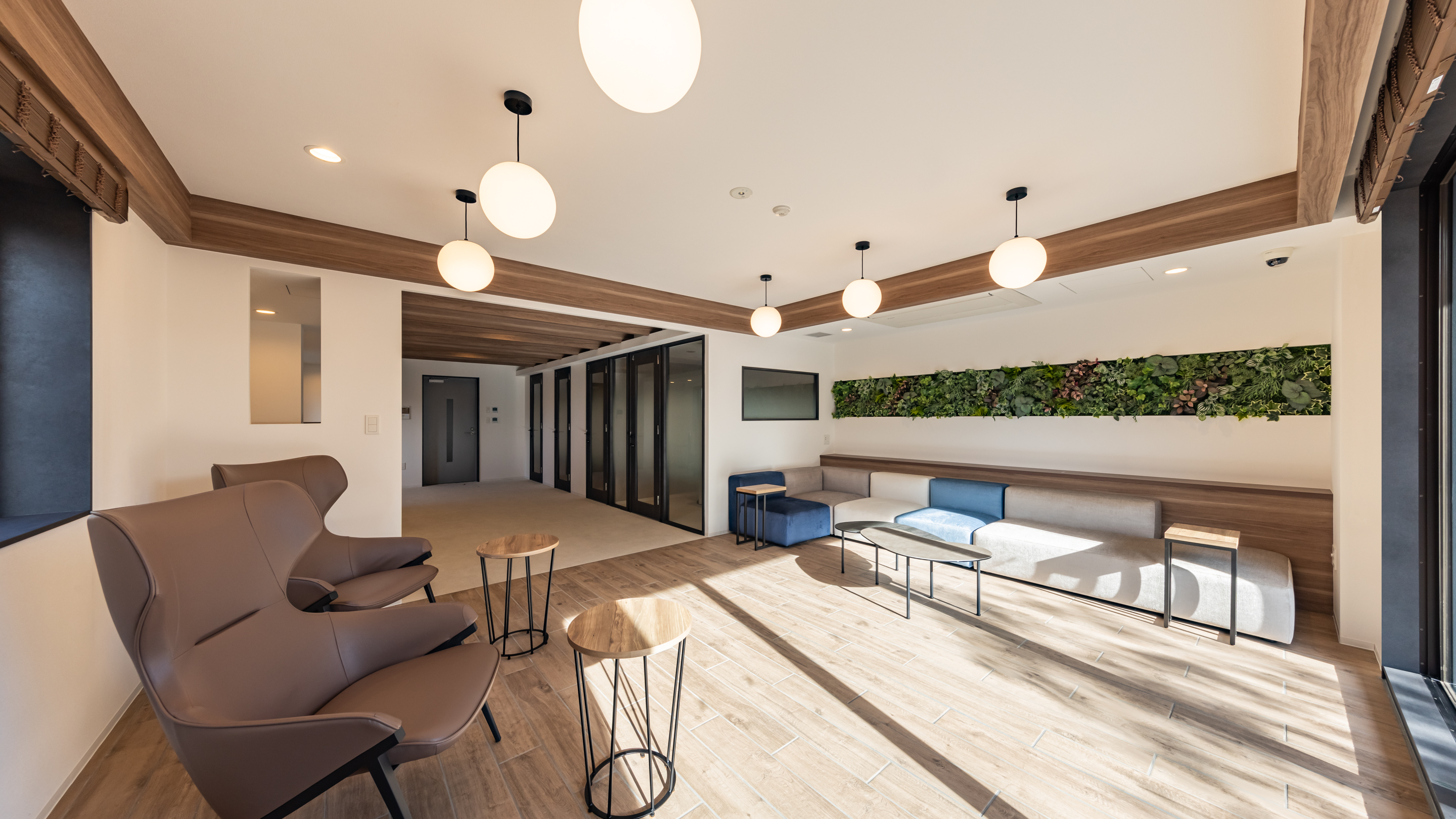
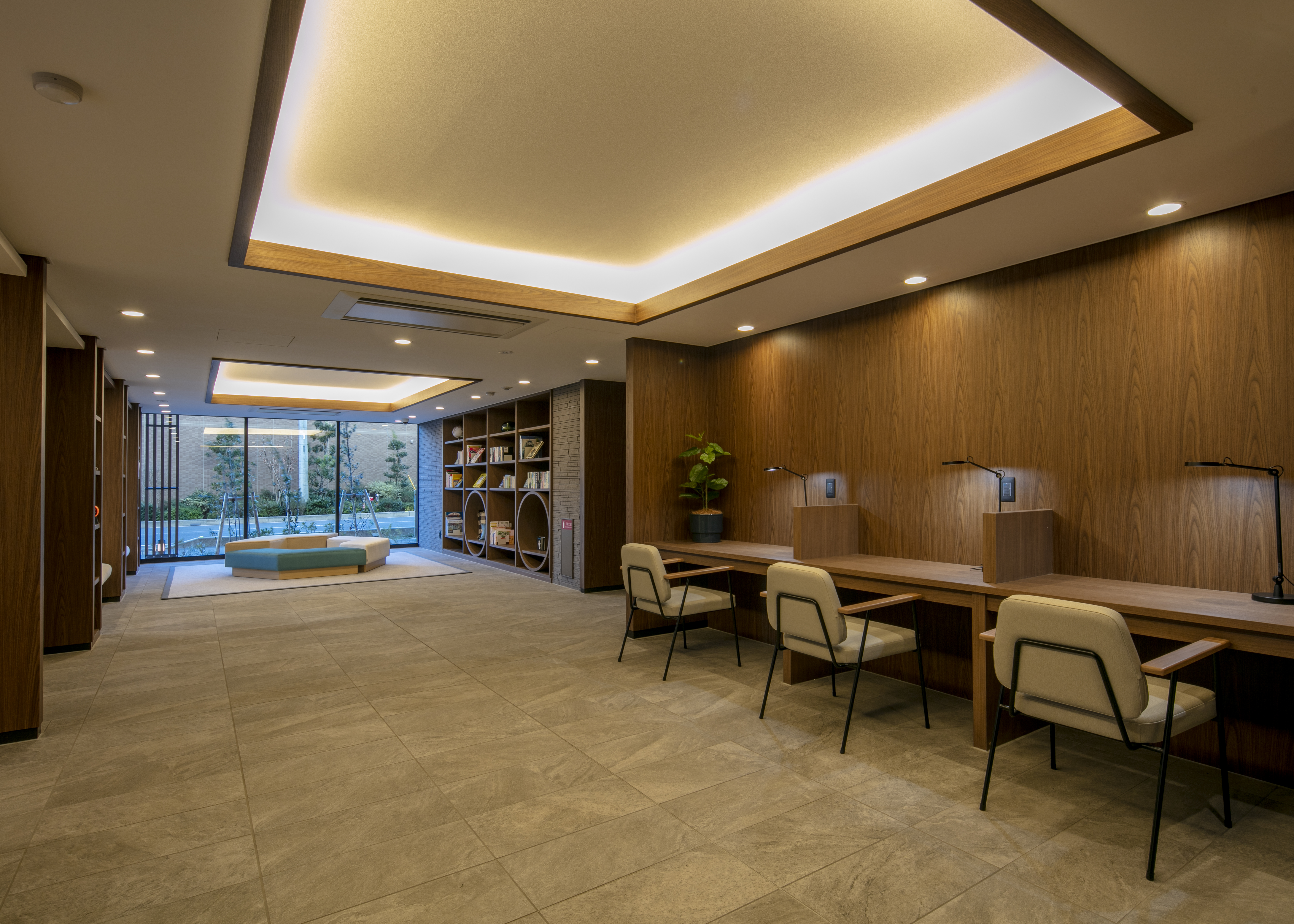
Station Villa
Supply of rental apartments with workspace
In March 2021, we began leasing Tobu Railway’s first rental condominiums with workspace, Solaie I’ll Soka and Solaie I’ll Shingashi.
In July 2022, we began leasing Solaie I’ll Koshigaya-Gamo, which has workspace in the common space and some residential rooms, providing a space where life and work are in harmony.
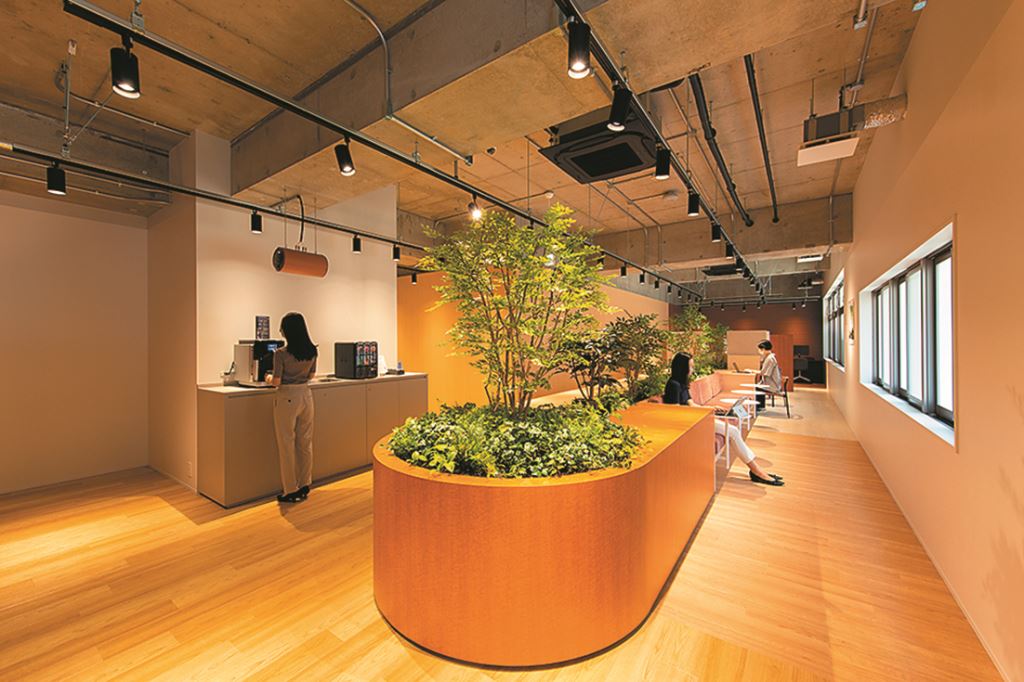
Solaie I’ll Koshigaya-Gamo
Opening of satellite offices
In June 2020, Tobu Railway opened the suburban satellite office “Solaie + Work” aimed at neighborhood development that is more convenient to live in by creating an environment where people can work and live in close proximity along our railway line. In addition to six store-type office facilities (Soka Matsubara, Fujimino, Kamagaya, Asakadai, Sakado, and Ginza), EKI DESK, a station box-type satellite office, is located at 13 stations including Kitasenju Station, supporting the work style not bound by time and place.
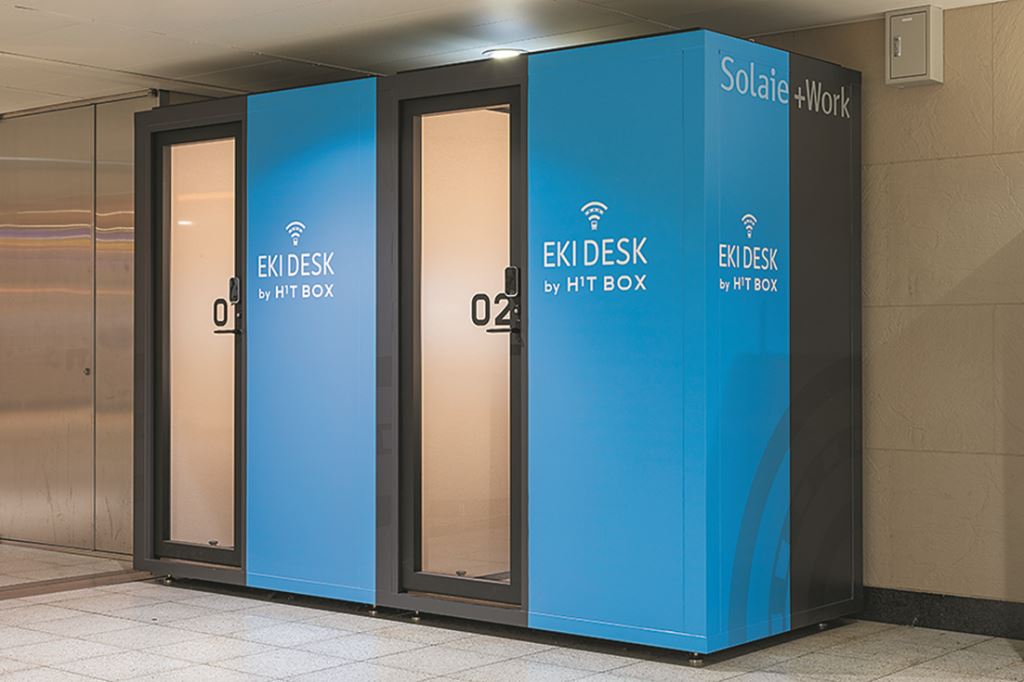
EKIDESK
Offering a New Lifestyle of “Living in Two Bases”
Tobu Railway has invited the “HATASUMIKA,” a stay-and-rent farm operated by AgriMedia Inc., to its property in front of Shinkoga Station on the Tobu Nikko Line, offering a new lifestyle.
In response to the growing interest in a two-base lifestyle that is not limited to the city center due to the diversification of values and changing lifestyles, a new two-base lifestyle is proposed, one in the city center and the other in the suburbs with a farm, through the collaboration between AgriMedia, which “has know-how in the rental farm business,” and Tobu Railway, which “connects the city center and the suburbs.”
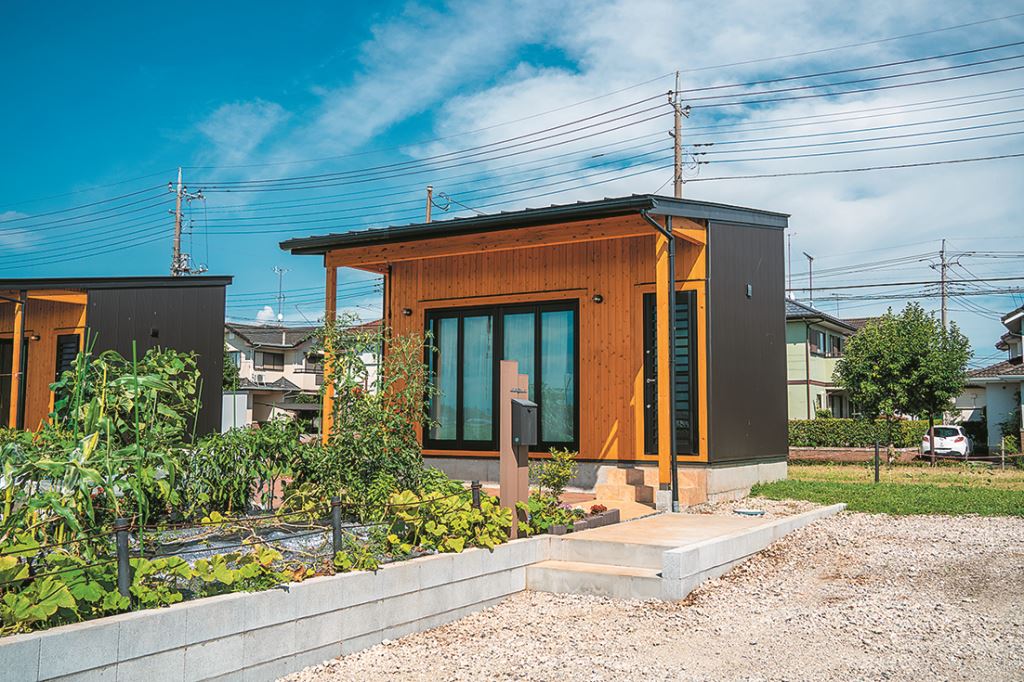
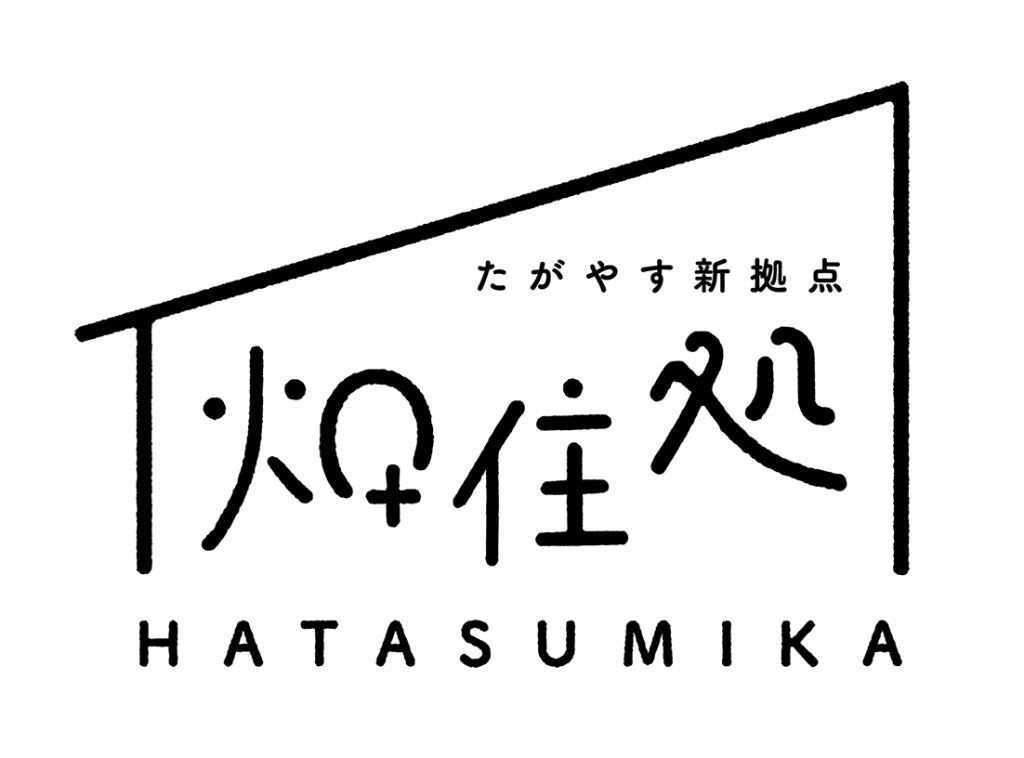
HATASUMIKA
Creation of community bases open to local society
In March 2024, Tobu Railway opened “Minori Terrace Soka,” a complex in Soka City, Saitama Prefecture, consisting of rental housing and stores made by renovating employee housing with a plaza and farm annex.
The facility consists of 44 rental housing units for families, 4 storefronts, and a plaza and farm that can be used by the local community. Based on the concept of "living in a city where people and the local community are connected,” we aim for this facility to serve as a community base open to the local community.
With the opening of this facility, we will endeavor to revitalize and increase the value of the local community and areas along Tobu Railway lines, by providing tenants and local residents with a life that offers meaning and comfort.
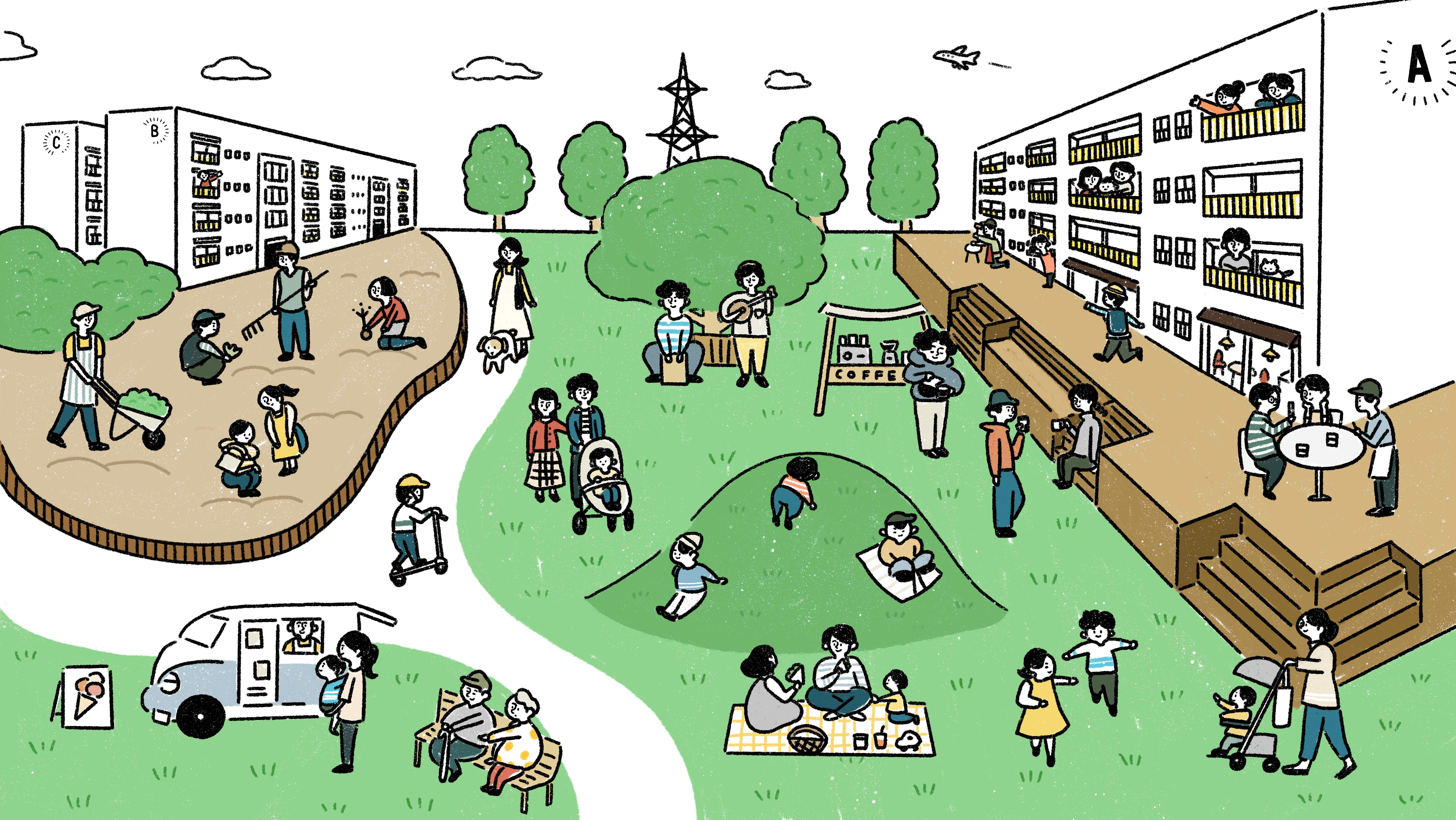
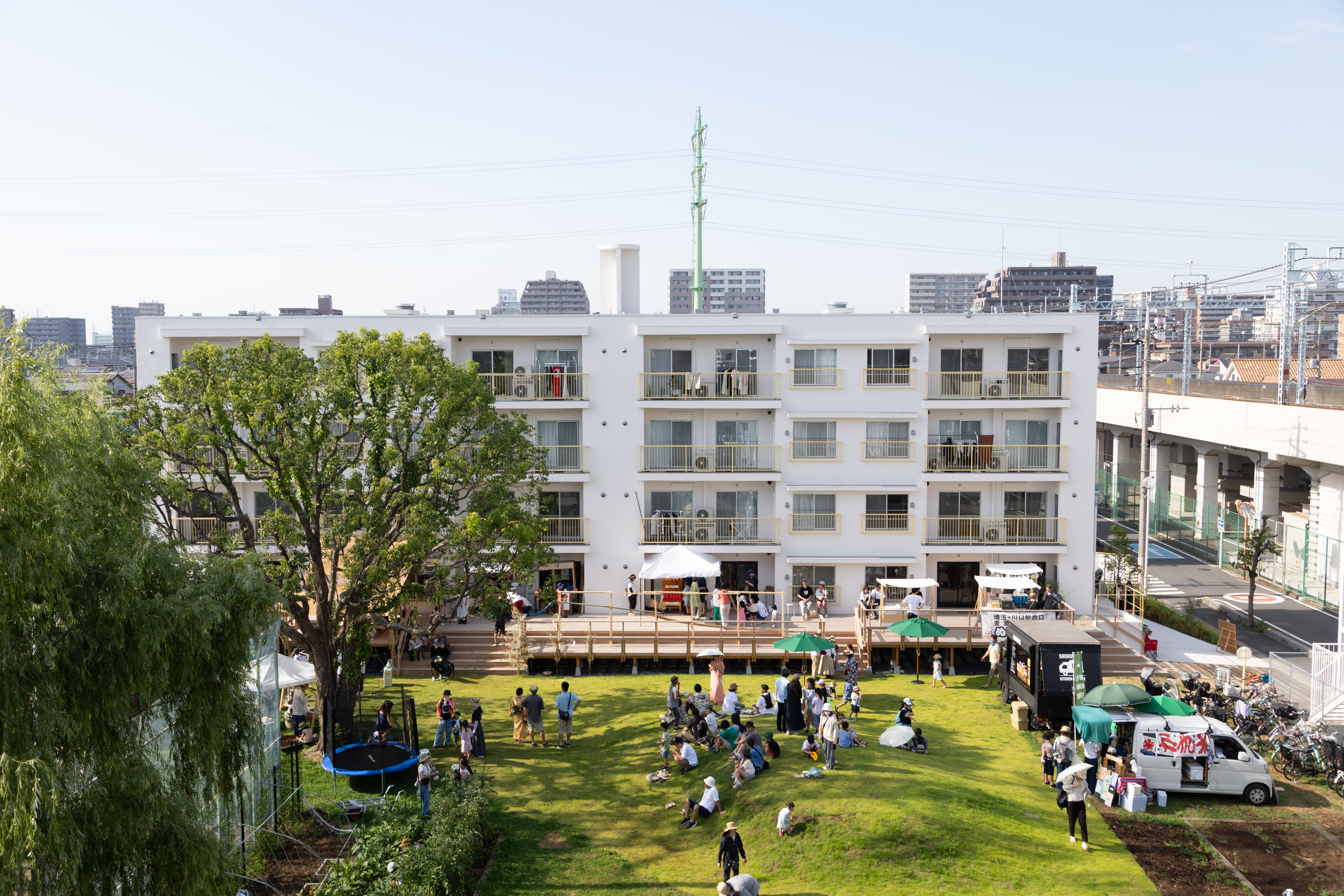
Minori Terrace Soka
Communication with local society
Provision of the “Tobu Group Social Learning Support Program”
The Tobu Group Social Learning Support Program creates opportunities for visitors to learn about railways and the Tokyo Skytree®, which are essential infrastructure for society, through hands-on experience. The program is designed to deepen participants' understanding of the mechanisms of rolling stock that support safe and reliable rail transportation, the mechanism of Tokyo Skytree, the world's tallest radio tower, and the cutting-edge technology concentrated in Tokyo Skytree Town®, and to encourage participants to feel a sense of attachment to and pride in the areas along the Tobu Railway lines.
We hope that this program will contribute to the improvement of school education and lead to the sustainable development of the region, as the children who will lead the next generation of communities along the Tobu Railway lines play an active role mainly along the lines.
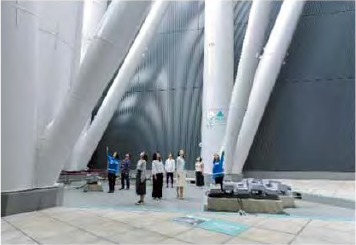
Tokyo Sky Tree Structure Guided Tour (image)
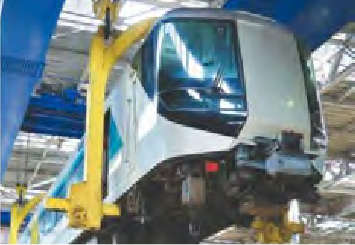
Minami-Kurihashi Plant Tour Program (image)
Tobu Railway Cup
As part of our support for activities to nurture healthy youth who will lead the next generation and our social contribution activities for communities along our railway lines, we hold the Tobu Railway Cup Youth Baseball and Soccer Tournaments, operated by volunteers from Tobu Group employees and other organizations. Since the start of these tournaments in FY2008, the total number of participants (players, coaches, and volunteer staff) has exceeded 70,000 in total through FY2022. In recognition of these efforts, Tobu Railway has been continuously certified by the Tokyo Metropolitan Government as a "Tokyo Sports Promotion Company" since the start of the system in FY2015. The Japan Sports Agency has also continuously certified the Company as a "Sports Supporting Company" since the start of the system in FY2017.

Youth baseball tournament

Youth soccer tournament
Provision of the Tobu Railway Children's Hands-on Program
The "Tobu Railway Children's Hands-on Program" is a program in which the Tobu Group will take a new approach to solving problems by linking the problems faced by the urban parenting generation, such as the rut of vacation destinations and limited transportation, with the problems faced by suburban areas, such as the need to communicate the attractiveness of local society.
By making the program an experience for elementary school children and their families, we provide "learning" through "play" that cannot be obtained at school or on the Internet, through interaction with local people in nature, agriculture, culture, science, and other areas.
In fiscal 2023, in cooperation with the Ashikaga City Tourism Association, we organized a total of 3 programs in the Nagusa area of Ashikaga City, Tochigi Prefecture, in which visitors can experience nature games, rice harvesting, and kamado rice making while exploring the mountains and rivers. A total of approximately 100 people participated. We will continue to conduct various programs for the parenting generation in cooperation with related parties.
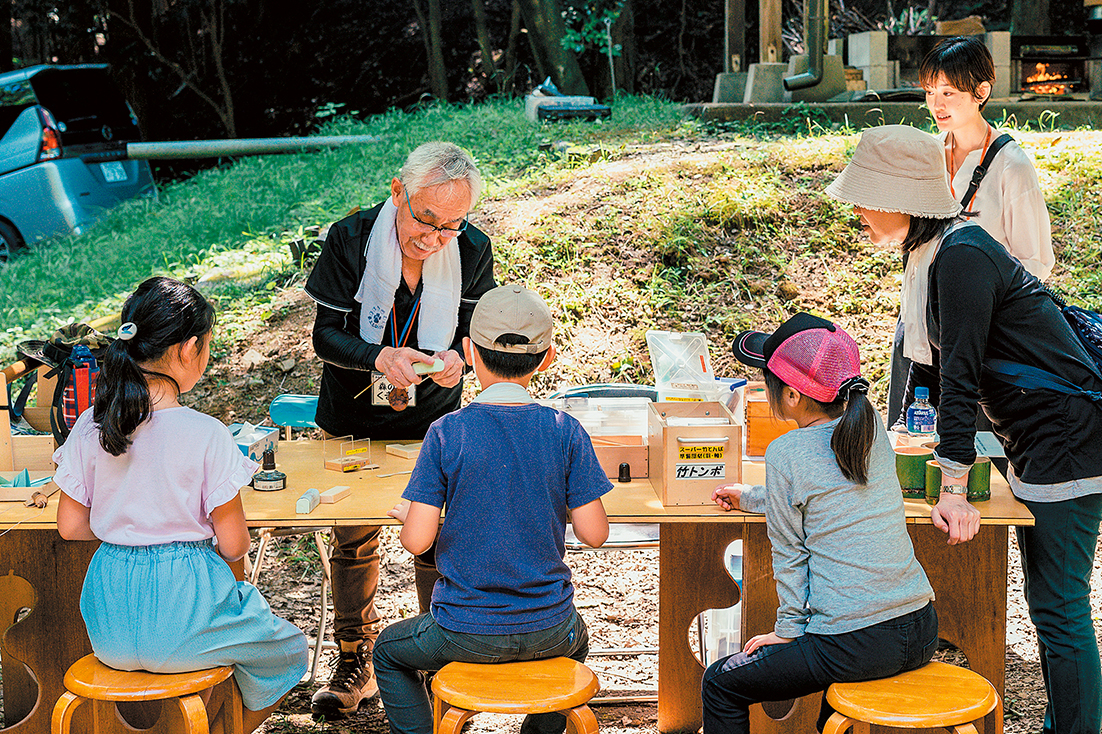
Experience of making bamboo dragonfly
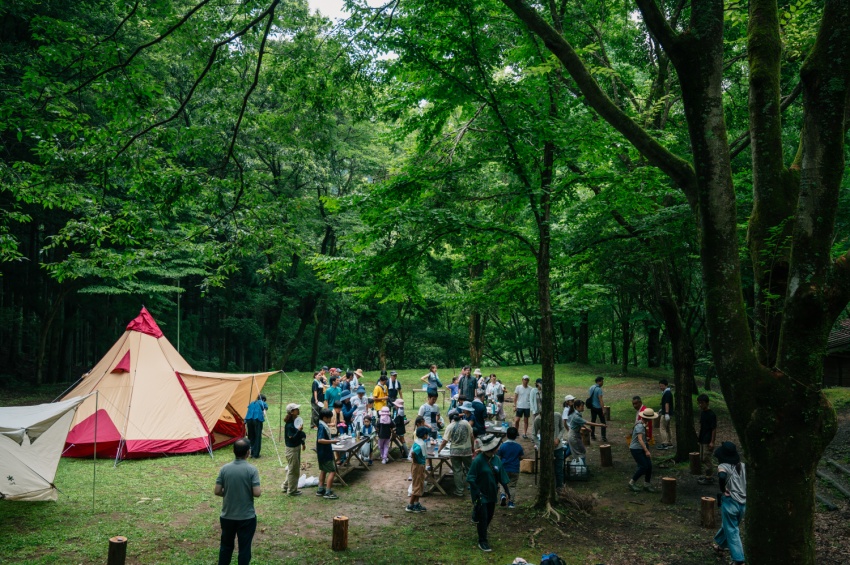
Hands-on Program participants
Provision of safety education
In the Railway Division, the operations chiefs of stations, operation districts, etc., lead safety classes at elementary schools along railway lines. In order to educate students about railroad safety, accident prevention, and manners on trains, we explain matters such as how to cross railroad crossings and ride trains in a fun and easy-to-understand way, and communicate with the children.
In addition, at local elementary and junior high schools, the bus companies of the Tobu Group promote communication with students through safety classes and accepting work experience students, in order to communicate the role of buses as public transportation and raise awareness of accident prevention and traffic safety.
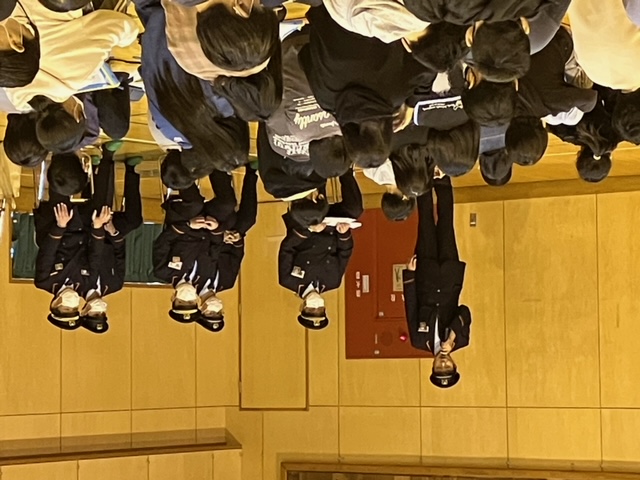
Safety classes
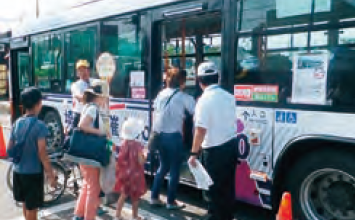
Class on how to ride buses
Provision of environmental education
Operations chiefs and others from each workplace along the Tobu Line teach classes at elementary schools along railway lines on the theme of "railways that are friendly to humans and the environment."
Since 2004, we have also published an annual "Social and Environmental Report for Children" and distributed it at each station, etc. Since 2019, we have made the report available online, through our “Tobu KIDS” website for children. These pages are designed to look like a bookshelf in a child’s room, and with “Railway” as a starting point, the content is designed to help children learn about the environment while having fun.
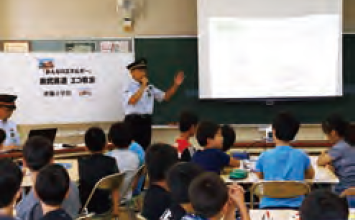
Scene in a class
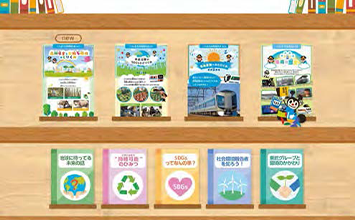
Bookshelf on the “Tobu KIDS” website for children
Holding of “SL (Steam Locomotive) Seminar to Learn the History and Culture of Railways”
In June and September 2024, Tobu Railway invited elementary school students from Nikko City to Shimo-Imaichi Station for the first SL Seminar to learn about the history and culture of railways.
The Company began operating steam locomotives in 2017, with the aim of revitalizing the Nikko and Kinugawa area by stimulating tourism. With the support of the local community, we celebrated our seven-year anniversary of operating these trains in August 2024.
This SL Seminar aims to deepen understanding of the cultural heritage of the railway industry and initiatives for regional revitalization by having participants experience history, tradition, and culture through a tour of a steam locomotive exhibition hall and a ride on a steam locomotive, and also offer participants an opportunity to learn about modern railways through a tour of station facilities, such as automatic ticket gates and automatic ticket vending machines, and a tour of station work. These seminars were held in cooperation with elementary schools, with the aim of creating future railway fans by having students learn about the history and culture of railways through steam locomotives, and thus familiarizing students with railways.
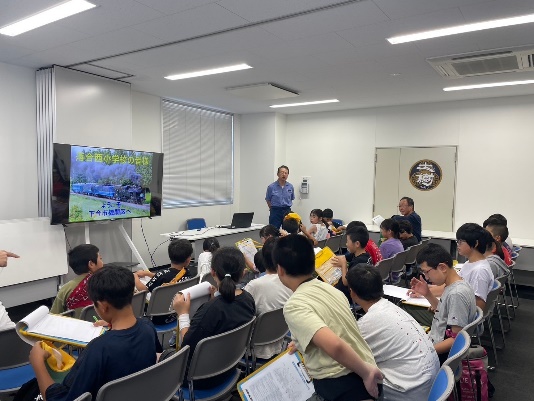
Explanation of steam locomotive mechanism in Shimo-Imaichi Engine Depot
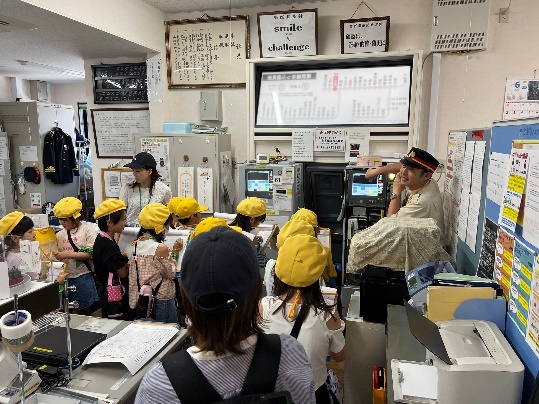
Explanation of the equipment in the station office
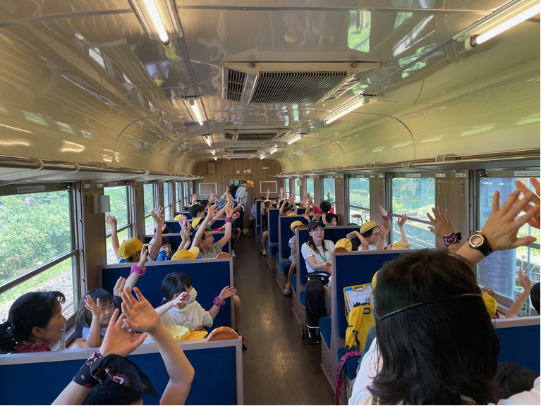
Inside SL Taiju
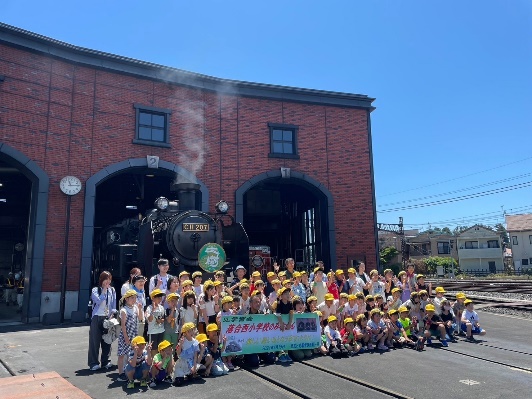
Group photo in front of the engine depot
Holding of employee training to support visually impaired customers and their experience sessions
In February 2023, we conducted employee training to support visually impaired customers.
This training was conducted in cooperation with organizations for the visually impaired as part of employee training to understand the behavioral characteristics of customers with visual impairments and the precautions to be taken when guiding them in railway facilities such as platforms and trains.
On the day of the event, we conducted training for employees at Tobu Utsunomiya Station and railway-related facilities in cooperation with visually impaired groups and students from schools for the blind along the route. In addition, we provided opportunities for visually impaired customers to experience walking on the tracks and inserting a white cane into a train door, which they would not normally be able to experience, in order to promote mutual understanding.
In February 2024, we also held an experience event related to the use of railway facilities for customers with visual impairments.
At this experience event, we welcomed visually impaired customers and walking trainers and used actual vehicles and facilities on training lines to offer them opportunities, including experiencing getting on and off trains using emergency ladders, which is not possible under normal circumstances, as well as walking and escaping on simulated railroad crossings by walking trainers, with the aim of promoting mutual understanding.
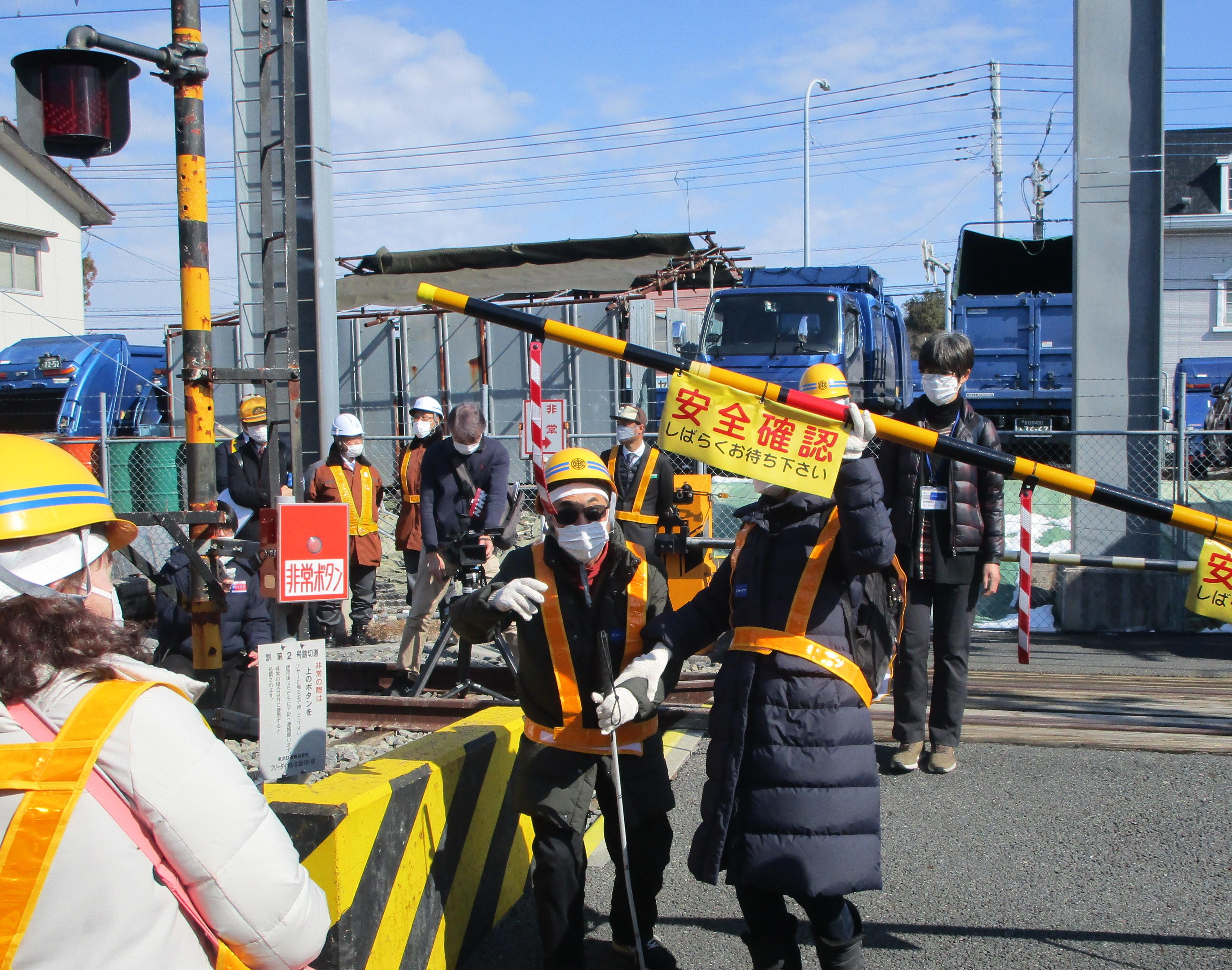
Experience of escaping from a railroad crossing
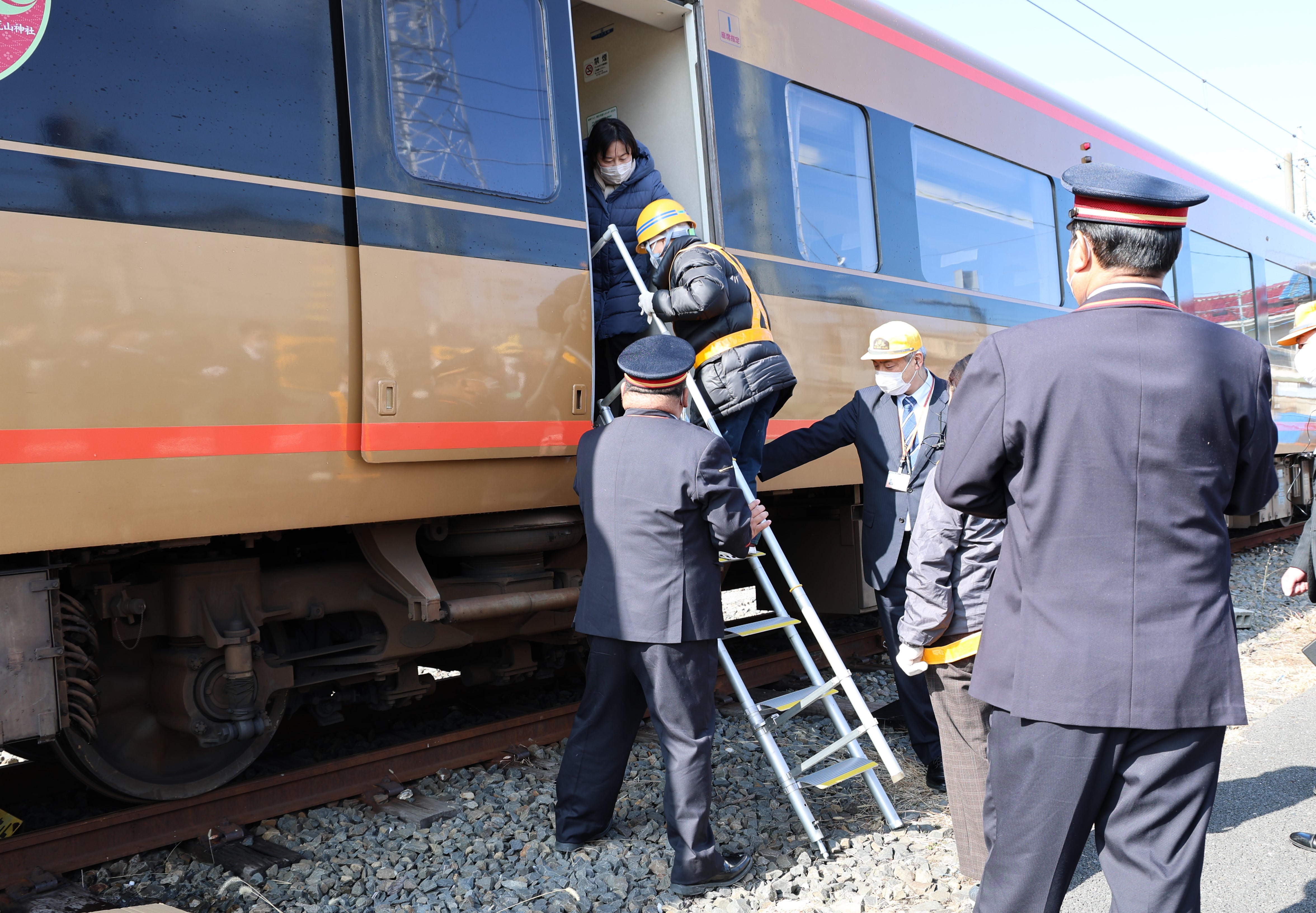
Experience of using the emergency ladder
Consideration for the living environment
Vehicle-related (soundproof wheels and anti-slip devices)
Soundproof wheels
During train operation, noise frequently occurs between the rails and the wheels and a typical example is the creaking noise that occurs when a train passes through a curved section. The mechanism of the creaking noise is that the rails and wheels rub against each other, causing the wheels to vibrate minutely, which generates a high-frequency noise. In order to reduce the creaking noise, we have introduced “soundproof wheels,” which are designed to suppress the vibration of the wheels. At present, the installation rate of soundproof wheels is 100% (excluding the steering wheels of Series 70000).
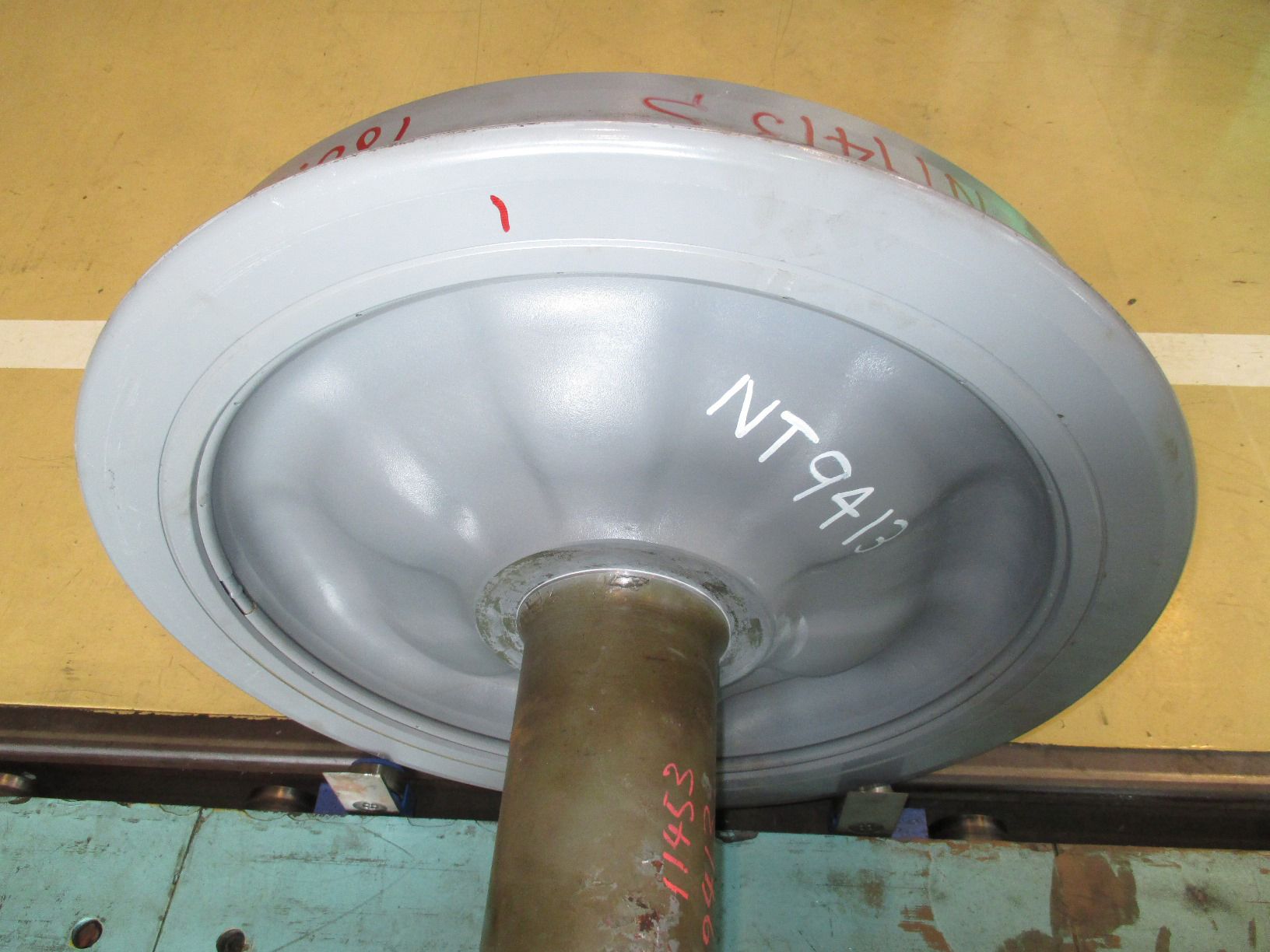
Soundproof wheels
Anti-slip device
If emergency braking is applied when the rails are slippery, such as in rainy weather, the wheels will slide on the rails in a locked state, creating a flat area on the wheels called a “flat spot.” These flat spots cause noise and vibration, so as a countermeasure, we are introducing anti-skid devices that detect skidding and adjust the brakes.
Track-related (anti-vibration and soundproofing in elevated sections)
As a measure to prevent vibration in elevated sections, we have introduced a rail directly connected to an elastic sleeper in each elevated section, and we are also spraying sound-absorbing ballast to reduce noise. In Takenotsuka, the rail weight was set at 60 kg per meter (previously 50 kg per meter) to further reduce vibration.
For soundproofing, sound barriers (bridge railing) have been installed on the outside of the viaduct to reduce the noise generated by passing trains.
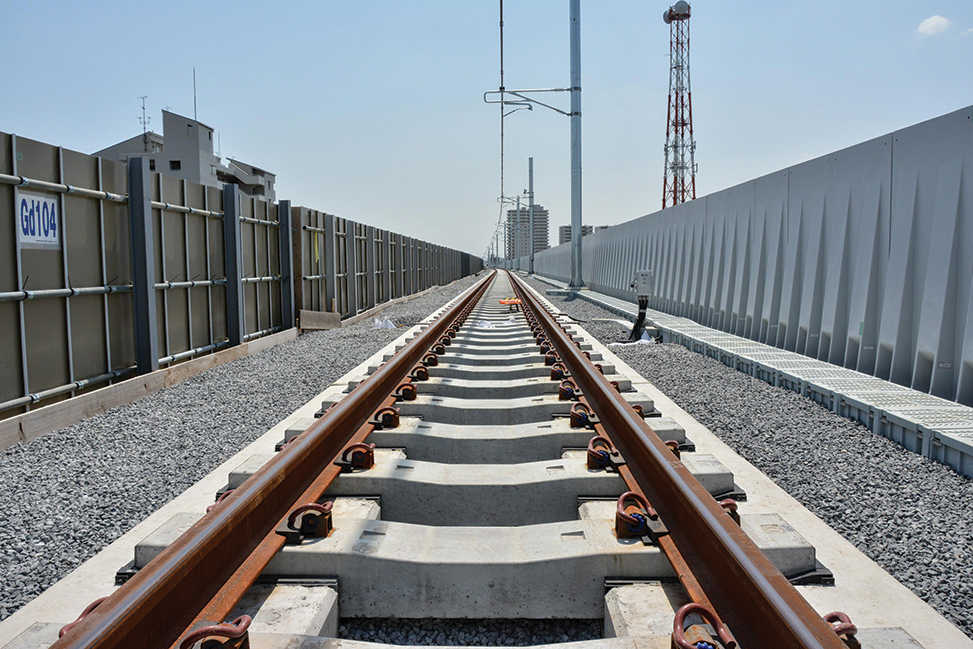
Elastic sleeper bonded directly to the track
New facility construction, improvement, and large-scale construction
For large-scale improvement works in the Railway Business, such as the elevation project near Tokyo Skytree Station, and for the construction of large-scale condominiums such as Solaie Grand Nagareyama Otakanomori, we will use heavy machinery that uses hydraulic pressure to drive piles and pull out steel plates that have been driven into the ground for reinforcement. We are trying to reduce noise and vibration by using low-noise, low-vibration machines that use hydraulic pressure or low-noise machines certified by the Ministry of Land, Infrastructure, Transport and Tourism.
We also make efforts to prevent the dispersal of dust by cleaning on a daily basis.
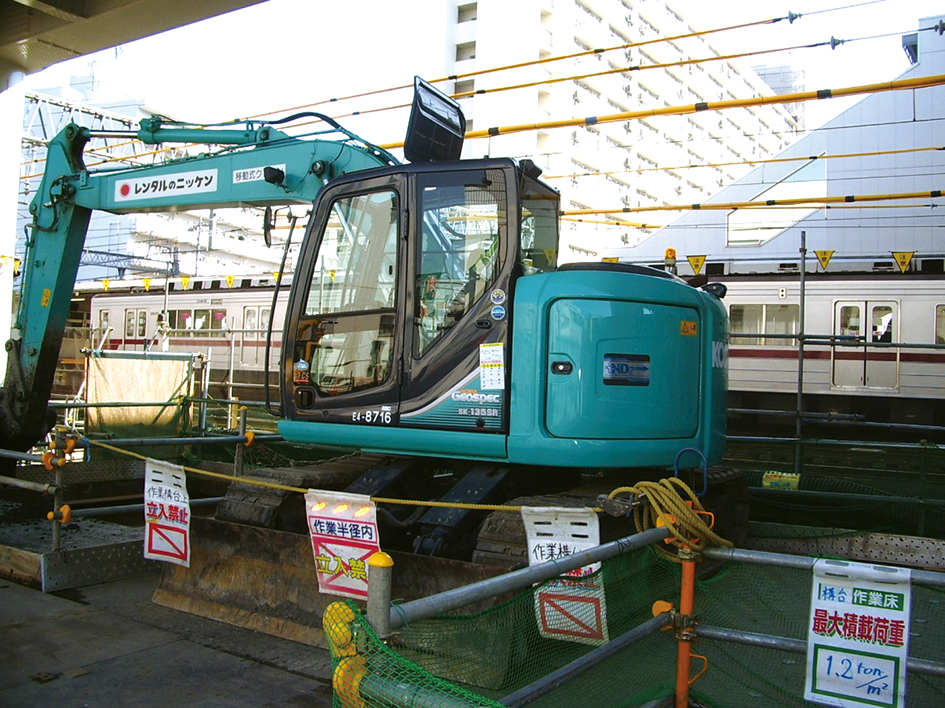
Low-noise heavy machinery
企業情報
- 企業データ
- 東武グループ経営理念等
- 社是・信条
- 基本方針
- 会社概要
- 東武グループ長期経営構想
- 東武グループ中期経営計画2024~2027
- 東武鉄道Webサイト一覧
- 業務組織
- 会社の沿革
- 東武鉄道125周年誌
- 会社要覧
サステナビリティ
- サステナビリティへの考え方
- サステナビリティへの考え方
- ステークホルダーとのコミュニケーション
- 環境負荷低減に向けた取り組み
- 基本的な考え方
- 気候変動に対して
- CO2排出量削減
- 再生可能エネルギーの活用(PPAなど)
- 森林資源・水資源の保全と生物多様性の維持
- 環境データ
- 東京都地球温暖化対策報告書
- グリーンボンド
- 社会環境報告書(2023,2022,2021)
- 南栗橋工場におけるISO14001
- ステークホルダーへの取り組み
- 基本的な考え方
- お客様に対して
- 地域社会に対して
- サプライヤーエンゲージメント
- コーポレート・ガバナンス
- コーポレート・ガバナンスについて
- コーポレート・ガバナンスに関する報告書






